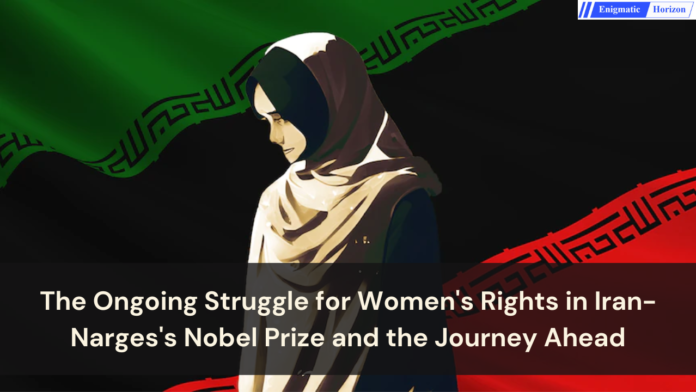Priyal Dholakia (Assistant Editor)
Throughout Iran’s history, women have endured widespread oppression. For generations, Iranian society has reinforced patriarchal standards, stifling women’s rights and possibilities. Individuals and organisations there have bravely fought for gender equality throughout history. And they have zealously gone against the grain. No doubt, the movement has made formidable strides in its efforts to restore peace so far. However, establishing true gender equality in Iran continues to be a looming challenge nonetheless.
Historical Roots of Gender Oppression in Iran
Iran has a long history of female oppression. Cultural and religious beliefs were once used to subjugate women in society. Forced marriages, limited access to education, and inadequate healthcare have all hampered women. Despite some progress, many women still experience these issues on a national level.
The Twentieth Century: A Watershed Moment in the Fight for Women’s Rights
Women’s rights activism has recently accelerated, particularly in the twentieth century. Around this time, Iranian women began requesting equal rights and opportunities. Global feminism and a growing understanding of human rights had an impact on them. But the 1979 Islamic Revolution changed everything. It established an Islamic Republic and implemented stringent religious regulations, limiting women’s liberties. In addition, a law requiring women to cover their heads and bodies—the hijab—was implemented. This became a symbol of Iran’s struggle for women’s autonomy and equality.
Contemporary Challenges and Activism
Despite these obstacles, Iranian women have continued to fight for their rights. They protested, formed groups, and spoke out against oppressive laws and practises. The government and conservative organisations vehemently opposed these efforts. They arrested, imprisoned, and assaulted female activists. But these women emerged brave and strong in their pursuit. Not just that, they also gave others hope and inspired them to fight for gender equality.
Harnessing Globalisation: The Power of Social Media
Iranian women can speak out in the modern era thanks to globalisation and social media. They can also use these places to highlight the unfair treatment they receive. Social media has raised awareness of domestic violence, honour killings, and unfair laws. Because of the increased visibility, more people in Iran support the need for change. Groups like Amnesty International and Human Rights Watch have also sparked change. They have been vital in identifying and documenting violations of national human rights.
Narges’s Nobel Prize: A Glimmer of Hope
Narges Mohammadi, a courageous Iranian woman, recently received the Nobel Peace Prize. She was honoured for her efforts to end women’s oppression in Iran. And for her efforts to promote human rights and restore freedom for all. This has drawn international attention to Iran’s ongoing fight for gender equality. The honour demonstrates how critical it is to honour those who work to create a just society. The cause still needs to be advanced, and there is still much work to be done, despite this honour. The Iranian women’s rights struggle is still continuing. And it requires ongoing efforts from people in Iran and around the world.
The Path Forward: A Call to Action
A comprehensive approach is required to truly address issues of gender oppression. To achieve gender equality, we must change unfair laws and educate everyone equally. Working with religious and community leaders to promote gender equality is also essential. They can aid in rethinking how religious texts are interpreted. All parties must cooperate if there is to be long-lasting change and a better future for women in Iran. This includes individuals, governments, and civil society.
Parting Remarks
Iran has a long history of social, cultural, and religious oppression against women. Fighters for women’s rights have been many and varied throughout history. But the conflict rages on even now. Narges’ Nobel Prize emphasises progress and unity in the fight for gender equality. To build a more just society, however, we must persevere, be determined, and collaborate. Let us hope to end oppression and give everyone the freedoms and rights they deserve.
